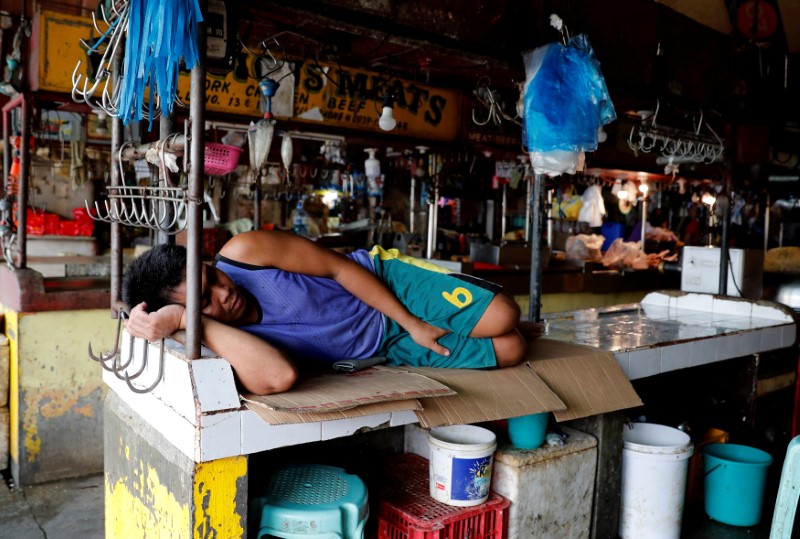Investing.com’s stocks of the week
By Manolo Serapio Jr and Enrico Dela Cruz
MANILA (Reuters) - The Philippine central bank has vowed to get the country's inflation rate back into its target range after the June pace surged to a more than five-year high, increasing pressure for more interest rate hikes than the two made this year.
Annual inflation quickened to 5.2 percent in June from May's 4.6 percent, exceeding the central bank's 4.3-5.1 percent estimate amid costlier food, alcoholic beverages and tobacco as higher taxes took effect this year.
"The higher-than-expected June inflation outcome is a setback," Bangko Sentral ng Pilipinas Governor Nestor Espenilla told reporters in a text message.
The central bank "reaffirms its strong commitment to ensure that inflation returns to within the 2-4 percent target range as soon as possible," he said.
The central bank next meets to review policy on Aug. 9. Asked if policymakers would wait for that meeting to take action or act immediately, Espenilla declined to respond, saying "enough said for now".
Economic Planning Secretary Ernesto Pernia, suggesting the central bank could have acted sooner, said "there may have been a little bit of a slip in timing" for the rate hikes.
"We expect inflation to peak in the third quarter and taper off by October," he said in a statement.
The BSP raised interest rates last month for the second time in six weeks, becoming the region's second central bank to deliver two hikes in a short time, after Indonesia.
The Philippines' key rate
A HIKE IN AUGUST?
Economists at Nomura expect a third 25-basis point hike on Aug. 9, and did not rule out further increases later this year.
"We believe inflation expectations are also likely to rise further, as evident in rising demand for wage increases," they said in a note.
ANZ said a rate hike it earlier forecast for November now could be made in August.
June's inflation reading far surpassed the 4.8 percent forecast in a Reuters poll of economists, and brought the average inflation rate to 4.3 percent in the first half of 2018.
Finance Secretary Carlos Dominguez said he would consider removing tobacco from the basket of commodities used in calculating inflation, which has a weighting of 0.9 percent in the consumer price index versus food's 35.5 percent.
The proposal needs to be discussed as it involves a change in methodology, Philippine Statistics Authority head Lisa Grace Bersales told Reuters.
Higher interest rates should also provide support for the peso, which has lost 6.5 percent against the dollar this year, making it one of Asia's worst performing currencies.
Following the inflation data, the peso
